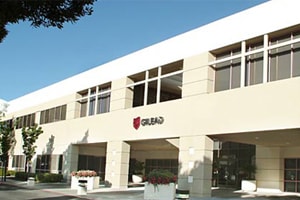 The new generation of directly-acting antiviral (DAAs) have transformed the treatment of hepatitis C virus (HCV) infections – but not all patients benefit. Now, Gilead has filed for US approval of a three-drug regimen that can be used as a salvage therapy in these cases.
The new generation of directly-acting antiviral (DAAs) have transformed the treatment of hepatitis C virus (HCV) infections – but not all patients benefit. Now, Gilead has filed for US approval of a three-drug regimen that can be used as a salvage therapy in these cases.
The single-tablet triple therapy contains sofosbuvir and velpatasvir – the two active ingredients in Gilead’s recently-approved two-drug HCV combination Epclusa – as well as a new pan-genotypic protease inhibitor called voxilaprevir.
The new therapy addresses “the remaining clinical need” in HCV treatment, which is “a safe and effective cure for patients who have failed previous therapy with DAA regimens”, said Gilead’s chief scientific officer Norbert Bischofberger.
It also worked in patients who had failed earlier treatments that included NS5A inhibitor drugs such as Gilead’s ledipasvir and velpatasvir, Bristol-Myers Squibb’s daclatasvir, AbbVie’s dasabuvir and Merck & Co’s elbasvir, which currently represent the most effective approach to HCV infection.
Gilead carried out four phase III trials in support of the FDA filing which showed that a 12-week course of the three drugs was effective in all of the most common HCV genotypes (1-6) – regardless of whether or not the infection had led to cirrhosis of the liver or not.
POLARIS-1 and 4 evaluated the regimen in patients who had previously failed a DAA and included patients with cirrhosis. Treatment of these salvage patients with the three-drug regimen resulted in sustained viral response (SVR) rates of 96% and 97%, respectively.
The two other studies – POLARIS-2 and 3 – compared the triple combination regimen in treatment-naïve patients given for eight weeks to Epclusa given for 12 weeks. POLARIS-2 was open to all genotypes, whereas POLARIS-3 enrolled only genotype 3-infected individuals with compensated cirrhosis, where the unmet need is the greatest. The SVR rates were comparable between the new regimen and Epclusa in both trials.
Data on patients who have failed treatment with a regimen that contains an NS5A inhibitor are limited, because these therapies are highly effective and failure rates are extremely low. However, with somewhere between 130 million and 150 million people infected with HCV worldwide, even small failure rates can equate to thousands of patients.
For Gilead, which has already already banked billions of dollars from its HCV franchise in the last couple of years but is starting to see sales tail off, the latest filing represents an endgame in HCV research, as it turns its attention to other opportunities in cancer and fibrotic diseases like non-alcoholic steatohepatitis (NASH).
“There really isn’t much left in terms of unmet medical need [in HCV],” said Gilead chief executive John Milligan. “From a pipeline perspective, this is really the end of what we’ll be developing in terms of HCV molecules.”




